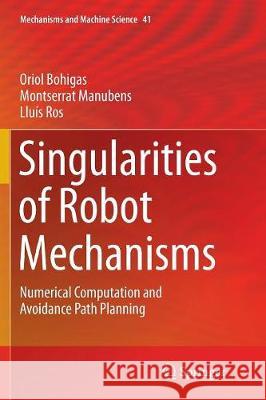Singularities of Robot Mechanisms: Numerical Computation and Avoidance Path Planning » książka
topmenu
Singularities of Robot Mechanisms: Numerical Computation and Avoidance Path Planning
ISBN-13: 9783319813998 / Angielski / Miękka / 2018 / 184 str.
Kategorie:
Kategorie BISAC:
Wydawca:
Springer
Seria wydawnicza:
Język:
Angielski
ISBN-13:
9783319813998
Rok wydania:
2018
Wydanie:
Softcover Repri
Ilość stron:
184
Waga:
0.30 kg
Wymiary:
23.39 x 15.6 x 1.12
Oprawa:
Miękka
Wolumenów:
01
Dodatkowe informacje:
Wydanie ilustrowane











